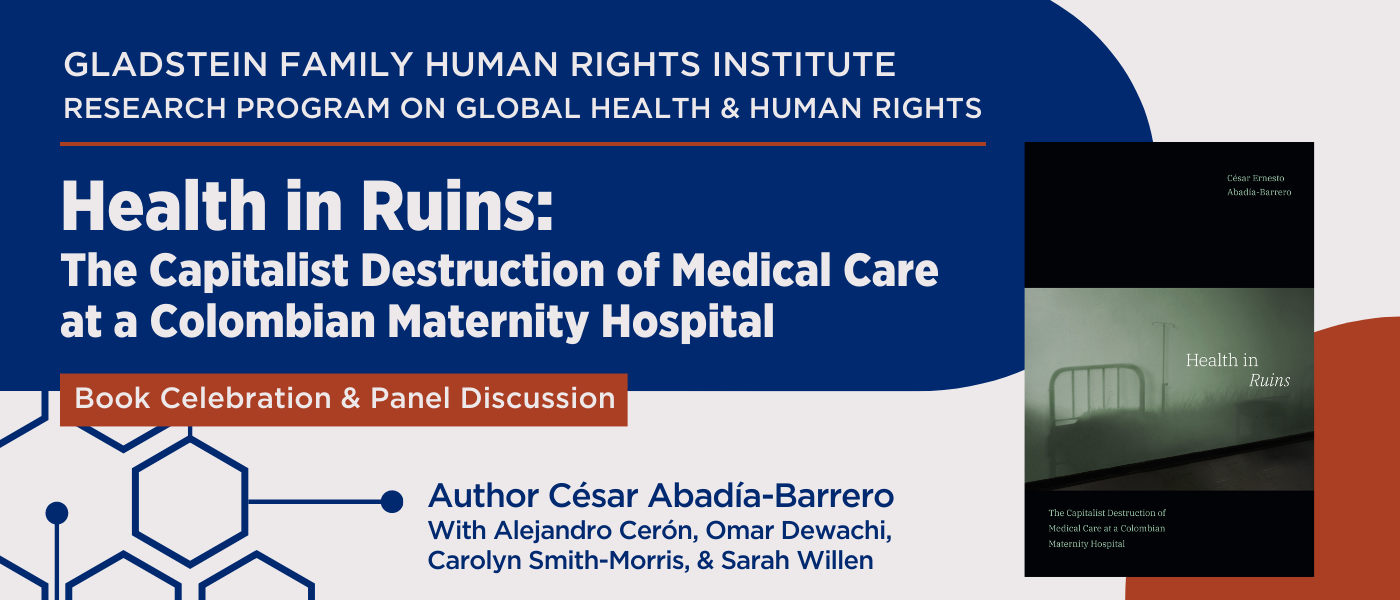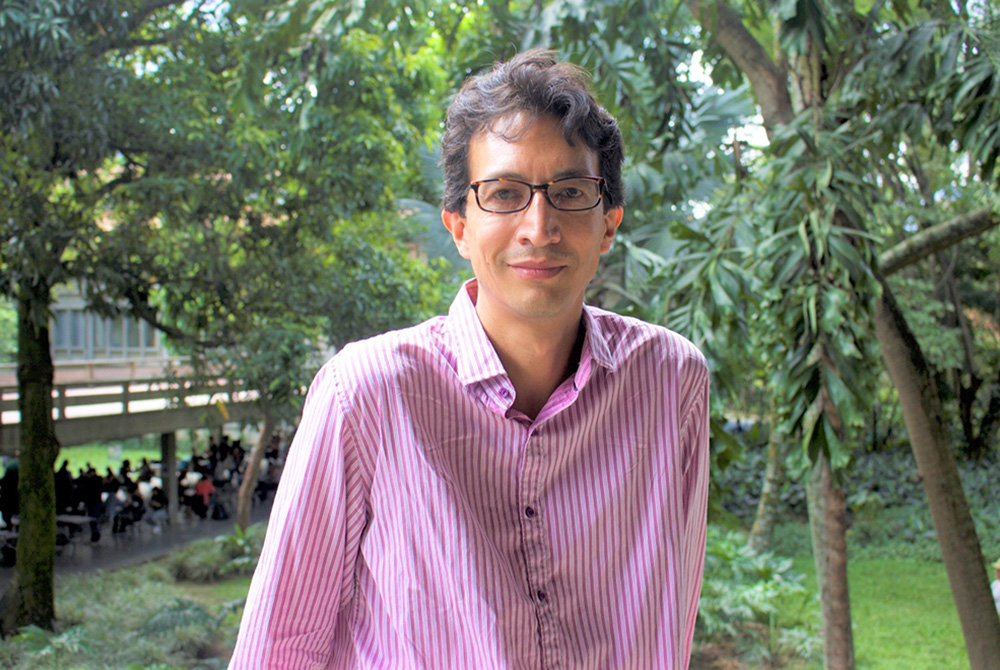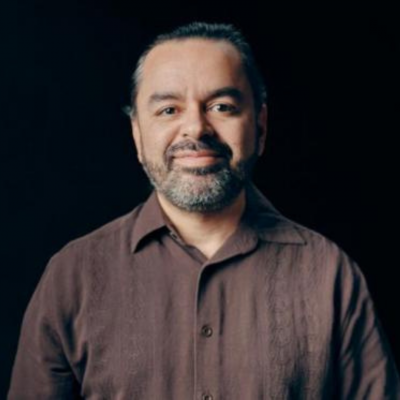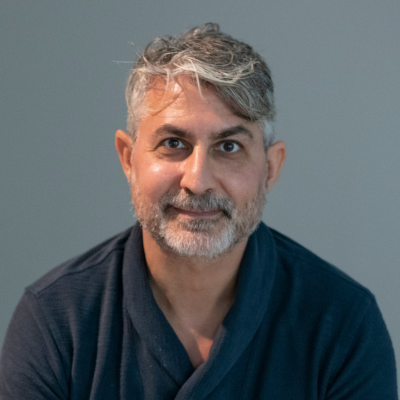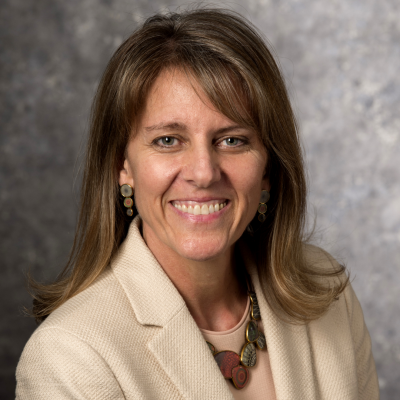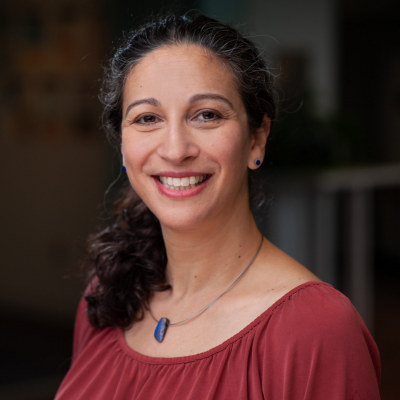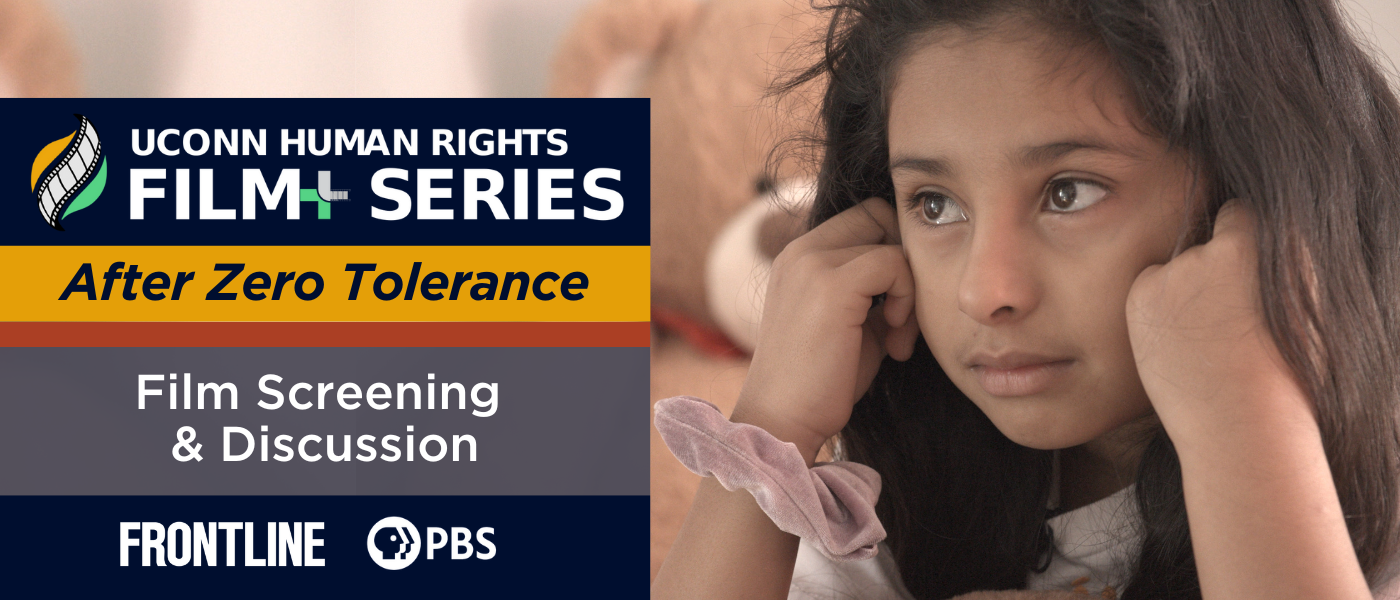March 9, April 4, & April 19, 2023
In-person: The Dodd Center for Human Rights - Room 162
Online: Zoom
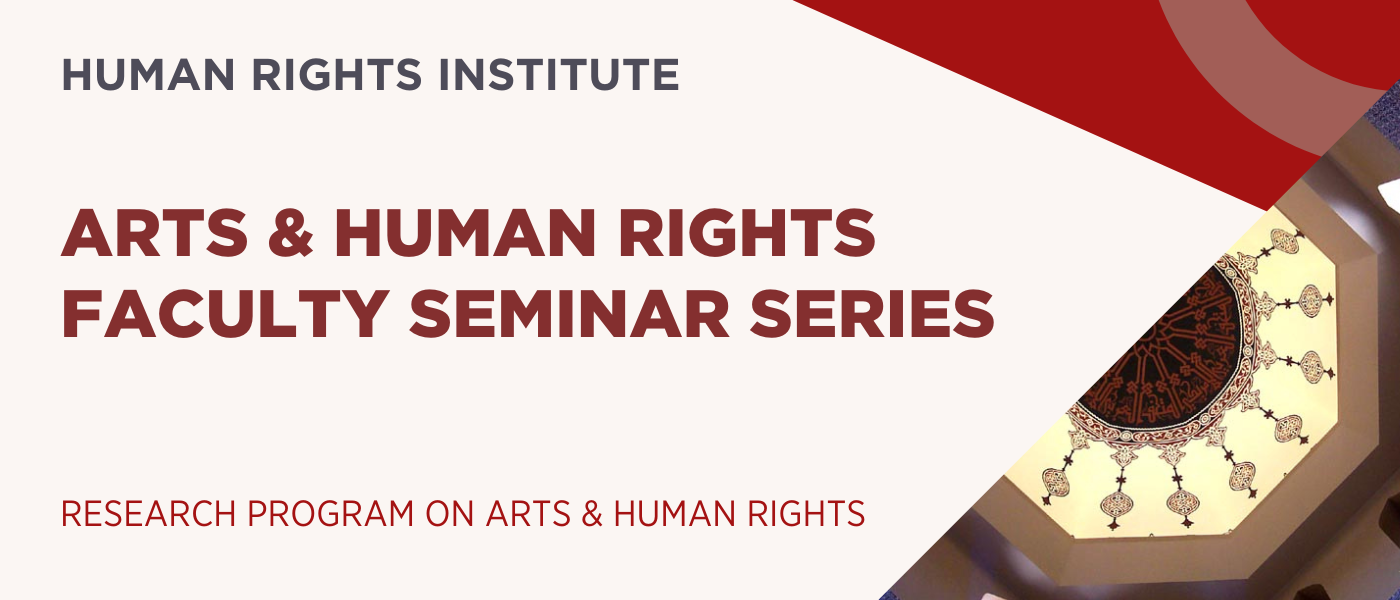
About the Series:
Join us for one or all discussions in this three-part series of faculty seminars sponsored by the Research Program on Arts and Human Rights. This series highlights the innovative work being done at the intersection of the arts and human rights among our faculty. All are encouraged to attend!
All sessions are hosted in-person with the option to join by Zoom. We kindly ask that you register to attend. Those attending in-person can join us in Conference Room 162 of The Dodd Center for Human Rights, while those joining by Zoom will receive a link to join upon registration.
Sessions
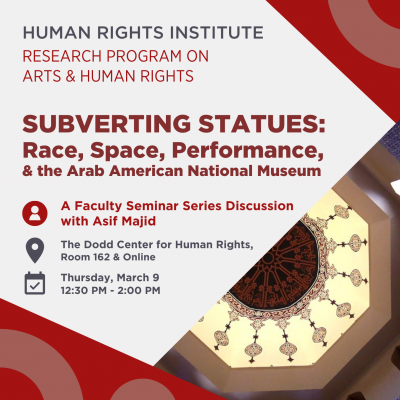 Subverting Statues: Race, Space, Performance, and the Arab American National Museum
Subverting Statues: Race, Space, Performance, and the Arab American National Museum
Thursday, March 9, 2023 | 12:30 pm - 2:00 pm
Asif Majid
In 2005, the Arab American National Museum (AANM) opened on the site of a former furniture store, opposite the former city hall building for the city of Dearborn, MI, a city outside Detroit that is often referred to as “the heart of Arab America.” At its founding, the museum also sat across the street from a statue of the former, long-serving, racist Dearborn mayor Orville Hubbard, an individual who explicitly referred to Arabs as “n******”; the Hubbard statue appeared to be gesturing to the museum. Drawing on my work at AANM this academic year – as an Arts Research with Communities of Color Fellow supported by the Social Science Research Council and The Wallace Foundation – in this talk, I ask: what performative, racial, and political power does the geography of the museum carry, particularly in reference to Dearborn’s racist history and spatial politics? And what might it mean to read politico-aesthetic institutions of color as a subversion of monuments to white supremacy?
About Asif Majid
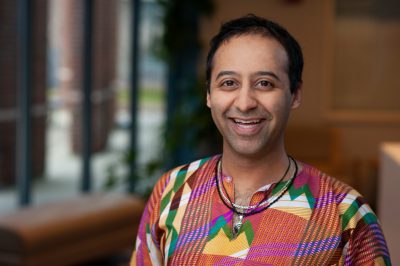 Asif Majid is a scholar-artist-educator working at the intersection of racialized sociopolitical identities, multimedia, marginality, and new performance, particularly through devising community-based participatory theatre and making improvisational music. Currently, he serves as Assistant Professor of Theatre and Human Rights at the University of Connecticut. Prior to UConn, Asif was a Mellon/ACLS Public Fellow with the San Francisco Arts Commission and a Lab Fellow with The Laboratory for Global Performance and Performance.
Asif Majid is a scholar-artist-educator working at the intersection of racialized sociopolitical identities, multimedia, marginality, and new performance, particularly through devising community-based participatory theatre and making improvisational music. Currently, he serves as Assistant Professor of Theatre and Human Rights at the University of Connecticut. Prior to UConn, Asif was a Mellon/ACLS Public Fellow with the San Francisco Arts Commission and a Lab Fellow with The Laboratory for Global Performance and Performance.
Asif has published in multiple peer-reviewed academic journals, as well as numerous books and media outlets. His research interests include performance ethnography, the intersection of Islam and performance, community-based devising, social justice performance, the ethnography of race, and applied theatre. Asif’s US performance credits include work with the Kennedy Center, Convergence Theatre, and Theatre Prometheus, and his UK performance credits include the Royal Exchange Theatre, Action Transport Theatre, and Unity Theatre. Asifearned his PhD in Anthropology, Media, and Performance from The University of Manchester; his MA in Conflict Resolution from Georgetown University; and his self-designed BA in Interdisciplinary Studies: Global Peace Building and Conflict Management from UMBC. He is online at www.asifmajid.com.
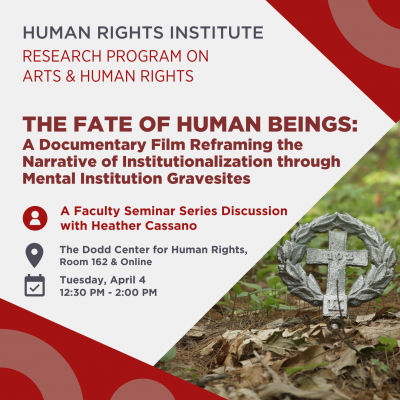 The Fate of Human Beings: A Documentary Film Reframing the Narrative of Institutionalization through Mental Institution Gravesites
The Fate of Human Beings: A Documentary Film Reframing the Narrative of Institutionalization through Mental Institution Gravesites
Tuesday, April 4, 2023 | 12:30 pm - 2:00 pm
Heather Cassano
The Fate of Human Beings is a documentary film uncovering the stories of people with disabilities and mental illnesses who are buried in unnamed graves in mental institution cemeteries across the United States. Through a multiple narrative approach utilizing archival and present-day material, the film unpacks the ramifications of these cemeteries, seeking to understand our past and present relationships with the “otherness” of those interred. This talk will show work-in-progress scenes from The Fate of Human Beings and discuss the research behind the project, including the first database to comprehensively catalog institution cemeteries in the United States.
About Heather Cassano
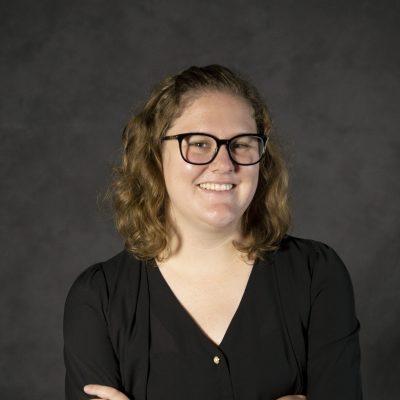 Heather Cassano is a documentary filmmaker and Assistant Professor of Film/Video at the University of Connecticut. She has presented work in the forms of still photography, multi-channel video, and short and feature films. Her films blend an observational style with deeply personal narratives, striving to tell authentic stories through her personal experiences. Heather’s first feature documentary THE LIMITS OF MY WORLD (2018), followed her severely autistic brother Brian as he transitioned from the school system into adulthood. The film screened at numerous festivals internationally, winning three Best Documentary awards and a Jury Prize. Heather is now working on her second feature documentary THE FATE OF HUMAN BEINGS, which uncovers the stories of people with disabilities and mental illnesses who are buried in unnamed graves in mental institution cemeteries across the United States. The film has been supported by Massachusetts Humanities, the LEF Foundation, the UConn Humanities Institute, and others.
Heather Cassano is a documentary filmmaker and Assistant Professor of Film/Video at the University of Connecticut. She has presented work in the forms of still photography, multi-channel video, and short and feature films. Her films blend an observational style with deeply personal narratives, striving to tell authentic stories through her personal experiences. Heather’s first feature documentary THE LIMITS OF MY WORLD (2018), followed her severely autistic brother Brian as he transitioned from the school system into adulthood. The film screened at numerous festivals internationally, winning three Best Documentary awards and a Jury Prize. Heather is now working on her second feature documentary THE FATE OF HUMAN BEINGS, which uncovers the stories of people with disabilities and mental illnesses who are buried in unnamed graves in mental institution cemeteries across the United States. The film has been supported by Massachusetts Humanities, the LEF Foundation, the UConn Humanities Institute, and others.
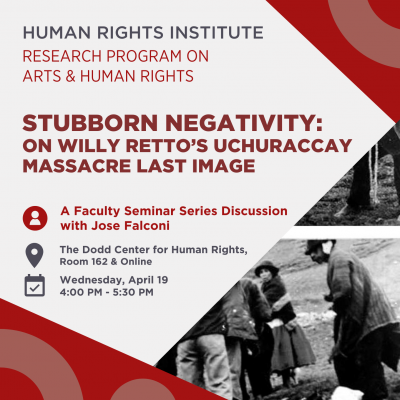 Stubborn Negativity: On Willy Retto’s Uchuraccay Massacre Last Image
Stubborn Negativity: On Willy Retto’s Uchuraccay Massacre Last Image
Wednesday, April 19, 2023 | 4:00 pm - 5:30 pm
José Falconi
The last film shot by photographer Willy Retto captures the killings of himself and several journalists by villagers in Uchuraccay, Peru in 1983, during the country's internal conflict. Despite the photographic evidence, many remained unconvinced as to the events that transgressed and the images shrouded in mythology. This talk reflects on the power of images to provide testimony of the past, while also resisting the linear progress of time. It considers the internal logic and desynchronization between word and image that can contribute to the fog of mythology surrounding historical events. Through this unresolved tension, we uncover a thought-provoking reflection on the complex relationship between images, memory, and history.
About José Falconi
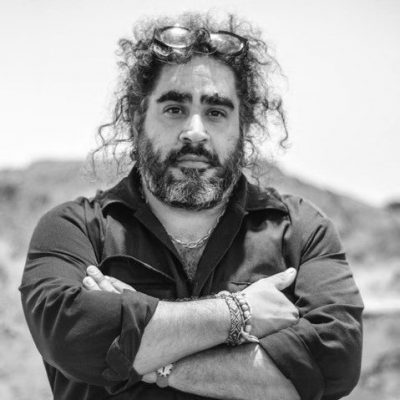 José Luis Falconi is a professor of art and human rights at the University of Connecticut, as well as the president of Cultural Agents, Inc., an NGO which promotes civic engagement and creativity through artistic education. From 2001 to 2011, Falconi was the art forum curator at the David Rockefeller Center for Latin American Studies at Harvard University, curating more than thirty shows of cutting-edge Latino and Latin American artists in an academic setting. From 2011 to July 2017, he was an associate of the Department of Art History and Architecture at Harvard University, where he received his doctorate in romance languages and literatures in 2010, and his post-doctorate the following year in the history of art and architecture under the supervision of Prof. Thomas Cummins.
José Luis Falconi is a professor of art and human rights at the University of Connecticut, as well as the president of Cultural Agents, Inc., an NGO which promotes civic engagement and creativity through artistic education. From 2001 to 2011, Falconi was the art forum curator at the David Rockefeller Center for Latin American Studies at Harvard University, curating more than thirty shows of cutting-edge Latino and Latin American artists in an academic setting. From 2011 to July 2017, he was an associate of the Department of Art History and Architecture at Harvard University, where he received his doctorate in romance languages and literatures in 2010, and his post-doctorate the following year in the history of art and architecture under the supervision of Prof. Thomas Cummins.
His latest academic publications include Portraits of an Invisible Country: The Photographs of Jorge Mario Múnera(2010), A Singular Plurality: The Works of Darío Escobar (2013), The Great Swindle: A Project by Santiago Montoya (2014) and Ad Usum / To be used: The Works of Pedro Reyes (2017). His monograph on Mexican artist Pia Camil, There are no Friendly Fires, will be published in 2022.
In the United States, Falconi has been appointed lecturer in the Department of Art History and Architecture at Brandeis University (2014-2020), at Boston University in the spring of 2016, and in the School of Fine Arts at the University of Connecticut in the spring of 2021. In Latin America, he was “bicentennial” Visiting Professor of Aesthetics at the University of Chile (Santiago de Chile, 2012 and 2019), “International Professor” at the National University of Colombia (Bogotá, 2013), visiting professor at the Center for Latin American Studies “Manuel Galich” at the Universidad San Carlos of Guatemala (2016), and Distinguished Visiting Professor at the University of Costa Rica (2017).

